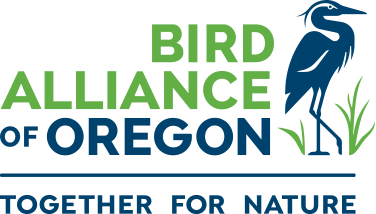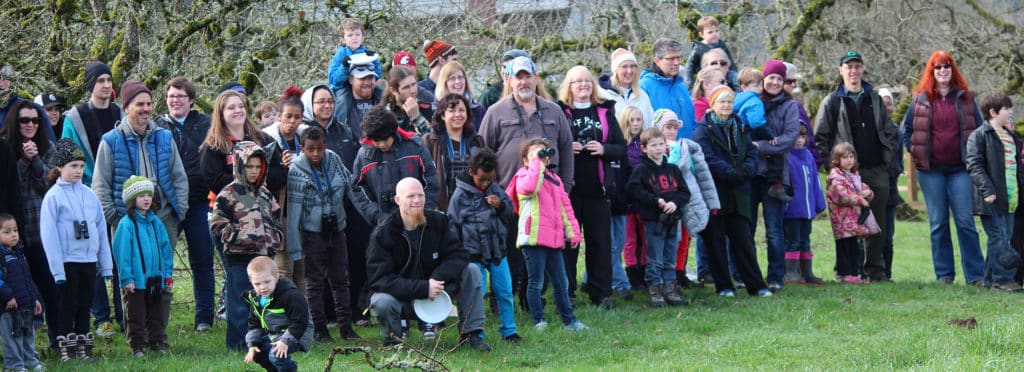
Take action to protect our night skies and ensure that the place we call home is a sustainable, ecologically healthy and livable city!
Advocate for the night sky by submitting comments to Shannon Buono, Project Manager via email at darkskies@portlandoregon.gov OR by sending a letter to Dark Skies Public Comment, 1900 SW 4th Ave Room 700, Portland, OR 97204. You can use our form letter and talking points below, or write your own!
Submit Comments via EmailKey Points
Please see our sample letter below and submit comments to the City.
Thank the City for their work on this report, which outlines a clear path forward for how Portland can begin to take corrective action to prevent and reduce light pollution. Tell them that you strongly support the implementation of the proposed dark skies recommendations! Then urge them to make a few additions:
- Set an aggressive timeline for the development of an outdoor lighting ordinance–by June 30, 2021–and ensure that there is adequate funding and staffing available to complete this effort;
- Commit to working with Multnomah County, Metro Regional Government and other cities in the Portland Metro region towards reducing light pollution across jurisdictional boundaries;
- Require that interior and exterior lighting on commercial and industrial properties–one of the largest uses of electricity in the US which creates significant amounts of light pollution–is regulated in both the City Code and Green Building Policy, highlighted in the Climate Action Plan goals and actions, and integrated into the Portland Clean Energy Fund Program;
- Collaborate with Portland General Electric, Pacific Power and Energy Trust of Oregon to educate customers about light pollution, reducing unnecessary usage, and installing motion sensors on outdoor lighting;
- Strengthen the City’s commitment to addressing light and light pollution-related inequities, including both the disproportionate impacts of light pollution AND for poorly lit streets and intersections;
- Provide adequate funding for the Portland Bureau of Transportation’s streetlight shield request program for residents who are experiencing street light trespass into their homes and provide for equitable outreach across all sectors of the city about this option.
Sample Letter
Thank you for the commitment that the City has made to the protection of dark skies as demonstrated in this Dark Skies Public Review Draft. I am writing to express my strong support for implementation of the recommendations laid out in this document, with a few additions. As a resident of Portland, I am concerned about the loss of our night skies, the waste of energy and carbon emissions caused by poorly designed lighting and the contribution this makes to climate change, and the human and wildlife impacts of poorly designed lighting.
I strongly support funding allocation to ensure the implementation of the next steps of the Dark Skies Project and:
- The development of a Dark Skies Code;
- City of Portland collaboration with jurisdictions across the Metro region to reduce light pollution;
- Regulation of lighting on commercial and industrial properties;
- Collaboration with various entities for public outreach and education about light pollution;
- Investigation into how this issue may be disproportionately impacting marginalized communities; and
- Improved operation of and equitable outreach about PBOT’s Street Lighting Shield Request Program.
I strongly support the development of a Dark Skies Ordinance for Portland in order to protect ecological systems as well as public health and safety through the adoption of best practices in lighting design. Light pollution degrades the nighttime environment, negatively impacts human and ecological health and safety, wastes money and energy, and contributes to our carbon footprint. I urge the City of Portland, which prides itself on its sustainability and livability, to adopt a comprehensive Dark Skies Ordinance as proposed within the next year–by June 2021.
Numerous other cities in the Portland metropolitan region have already adopted exterior lighting ordinances to address light pollution. Multnomah County has also adopted a Dark-sky Ordinance for rural parts of the County requiring low intensity lighting that minimizes light pollution. If we wish to curb this issue in our growing region, the City must create capacity to partner with the County and other cities in the Metro region to address light pollution across jurisdictional boundaries.
According to the most recent data available on building energy usage, 17% of the electricity consumed in U.S. commercial buildings is for lighting, making it one of the largest uses of electricity in the nation. This is low-hanging fruit for meeting the goals of the 2015 Climate Action Plan, which calls for an 80% reduction in carbon emissions from 1990 levels by 2050. We are not currently on target to meet those goals. Code requirements for reduction of unnecessary overnight lighting in commercial and industrial buildings can help us meet the City’s commercial building sector energy performance benchmarks and building operations targets laid out in the Climate Action Plan. Furthermore, 13% of residential electricity use is for outdoor lighting, much of it wasted. The city should be collaborating with Portland General Electric, Pacific Power, Bird Alliance of Oregon and other community partners to educate customers about light pollution, reducing unnecessary usage, and options for installing motion sensors on outdoor lighting.
While the City’s conversion to LED street lighting has reduced energy usage for the City, it has also increased light trespass into resident’s homes and apartments. Blue-rich white light emitted by these lamps suppresses melatonin secretion and impairs sleep, which was flagged by the American Medical Association in 2016 as a potentially serious public health concern. Though the City has developed a street light shield request program, it is underfunded and has a backlog of complaints. Additionally, the program is unevenly accessed across the city and some public health research suggests that light trespass may be disproportionately impacting marginalized and vulnerable communities. Portland residents who live nearer to brightly lit main arterials or that live in historically red-lined areas with fewer large form trees to help buffer light trespass may be at greater risk. The City needs to better understand the equity considerations and the mechanisms that are driving the unevenness in geographical access to the Street Light Shield Request Program, and the program needs to be adequately funded to respond to shield requests in a timely manner.
Thank you for your consideration of these comments in support of and to strengthen the Dark Skies Public Review Draft. I appreciate the City’s commitment to the human health and ecosystem health of our city!



